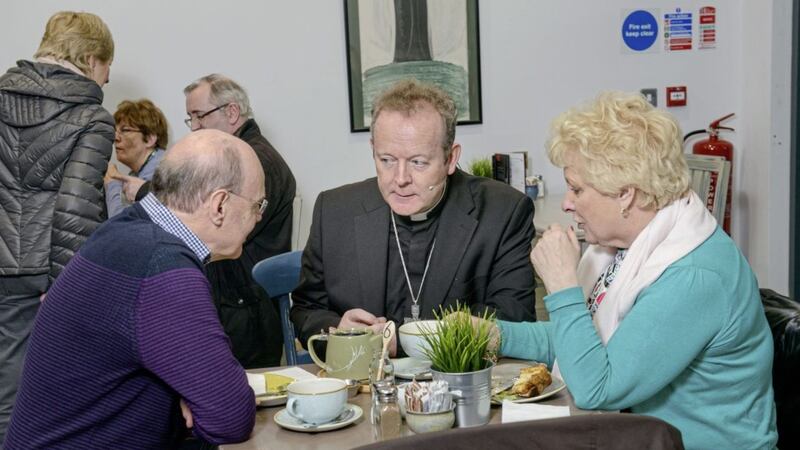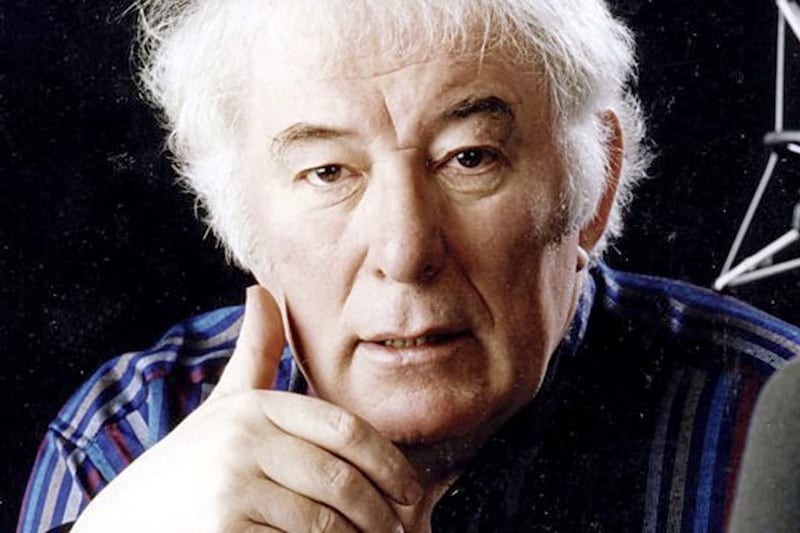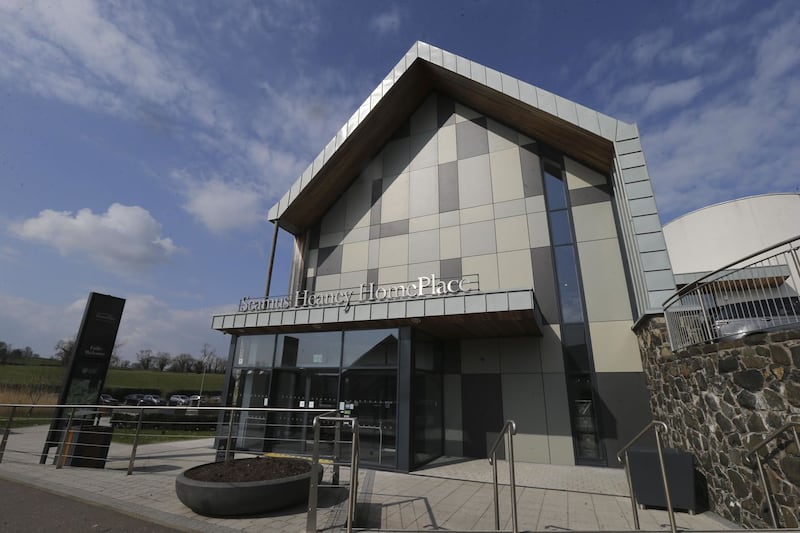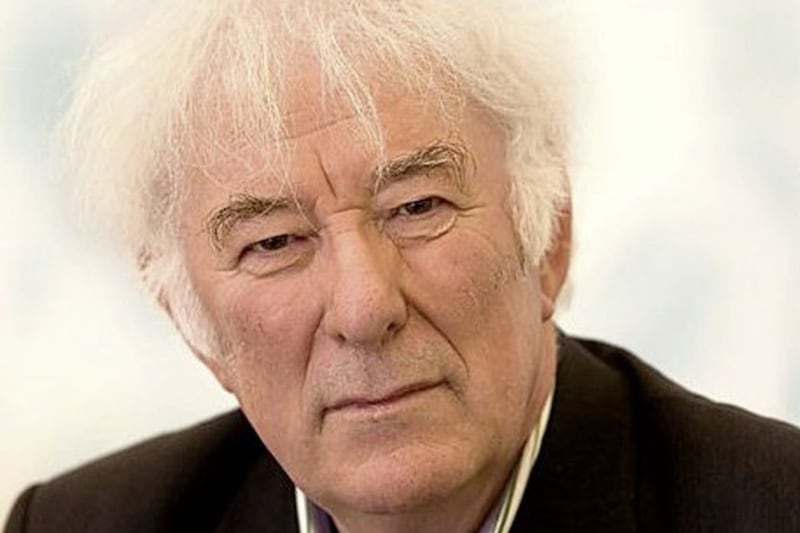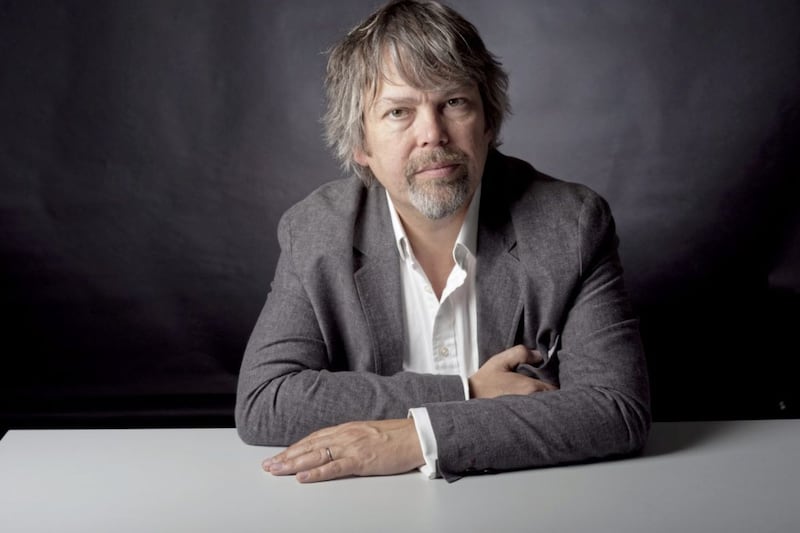EVERY year the diocese of Derry issues a directory listing all the priests of the diocese. It was with a sense of loss that I discovered in the January 2014 edition that, having moved to Armagh, I was no longer counted among the priests of Derry. It wasn't that I hadn’t settled in Armagh, or even that I was pining for the town I loved so well. It was one of those moments when I realised that I was `in between' - I’d moved on from the city of the oak grove to new pastures; I now had a new flock, new responsibilities and challenges in the orchard county and beyond.
The life of a priest is bound up with his diocese. At ordination we join a `presbyterate', a brotherhood or fraternity of priests within a particular local church or diocese, as co-workers with our bishop. We become members of a family whose ties are not from flesh and blood, but from the grace of Holy Orders which binds us together in spiritual and pastoral belonging to the people of the parishes in our diocese. That sense of belonging, consecrated by the laying on of hands at ordination, is still strong in me. This connection was somehow disrupted when I made my way from the pastures of Columba and Eugene to the territory of Patrick, Malachy, Brigid and Oliver Plunkett.
Among my earliest memories as a pupil of St Columb's College in Derry is of hearing the sound of the college bell in Bishop Street. Our English teacher reminded us that was the same bell which Seamus Heaney had written of "knelling classes to a close" in his powerful poem, Mid Term Break. We studied the poem in my first year and I remember thinking Heaney was just around my age when he made that sad journey home for his younger brother's funeral - only he was a boarder who had to leave his beloved Bellaghy home as a young boy to find himself bereft and far from home in the city. He has written about the unforgettable homesickness and grief he felt during his earliest school days at St Columb's.
Heaney's rootedness and attachment to his home place and family in Mossbawn was to stay with him all his life. So much of his poetry and thought sprung from his sense of belonging to place and people in the Bellaghy area. It was deep down in him, the place in which he grew to know who he was - not just as a child, but also as an adult. Here was his personal Mount Helicon - the source of his understanding of himself, the font of his poetic inspiration. His early poem Personal Helicon draws this out in a striking way.
Life is full of curious intersections of events and places and people. In the chapel in Bishop Street I remember one of our teachers telling us that the famous Seamus Heaney would have sat on those same pews as a young first year like us. I have since contemplated him sitting there, perhaps praying for his family and people at home, especially his grandfather, father and mother. Perhaps this was the place that a homesick young Co Derry boy noted in his mind's eye the memories that would later brim over in his poetry - like peeling spuds with his mother; seeing her out hang out the sheets to dry; the sounds of his father digging, the smells and sights of the turf banks, cattle and fields around home.
Moving to a new diocese with new priests and parishes has given me a greater sense of belonging to the wider, universal family of the one, holy Catholic and apostolic Church. I have come to realise that parish ought never to be parochial in the pejorative sense of the word. It is merely a gateway, threshold or opening to something beyond itself - the diocese, the universal Church, and on to the eternal kingdom of God.
My family had strong connections, growing up, with my local parish of St Patrick's Pennyburn in Derry where I was an altar server, and later a reader and assistant sacristan. The priests of the parish were household names; home, school and parish closely cooperated in handing on the faith. Nowadays that sense of belonging is perhaps less significant in the life of the average Catholic, although this varies from area to area, from rural to urban.
As bishop I've visited parishes where I've experienced a strong sense of identity and community, connection and belonging. However, few would disagree that all forms of community have taken a battering in a culture where individualism, personal autonomy and choice are often paramount. Although social media links us in a great global network, still it can be shallow and cosmetic, fleeting or superficial.
Seamus Heaney was not easily drawn on the subject of his own spirituality - perhaps it was a case of, as he quipped in North (III), "whatever you say, say nothing"; "religion's never mentioned here". He was certainly steeped in the tradition, culture and mystery of the faith in which he was raised and, despite expressing occasionally his doubts and lapse, he never once to the best of my knowledge, profaned or disparaged the religion of his youth.
His son shared with us that, in the minutes before he died, Seamus Heaney sent a text message to his wife Marie saying Noli Timere - do not be afraid. Despite all the words he himself had written, he could think of no greater gift than the consoling Word, central to the Judeo-Christian tradition of an all-loving, all-merciful God. Heaney has hinted that his love of words was nourished by the mystique and beauty of the liturgy like the litany of the Blessed Virgin his family used to recite at home, connected together in prayer - "Tower of Gold, Ark of the Covenant, Gate of Heaven, Morning Star, Health of the Sick, Refuge of Sinners, Comforter of the Afflicted."
On the day of his burial I had the privilege of walking with his loved ones in the funeral procession to his final resting place in a corner of St Mary's Churchyard, Bellaghy. Just as the prayers ended I had the privilege of leading with the other priests present the singing of the Salve Regina. Marie and many around us joined in. For a moment we were all linked `in between' - family, friends, neighbours, priests, believers and non- believers alike, "sending up our sighs, mourning and weeping in this valley of tears", but looking to heaven forgetting self, forgetting earthly barriers, forgetting Bellaghy.
:: Taken from an address by Archbishop of Armagh Eamon Martin at Seamus Heaney HomePlace.
